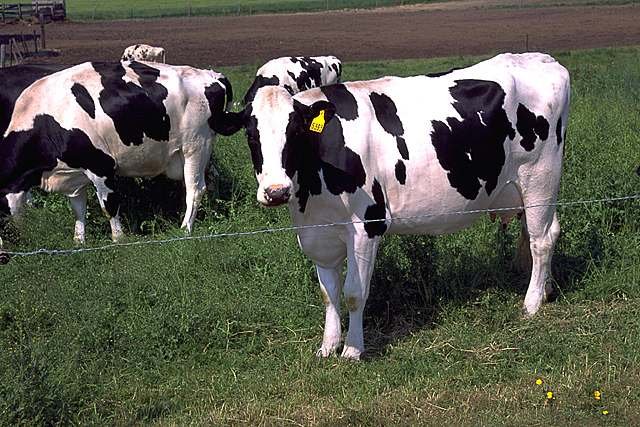Recent Study Reveals That Meat-Eaters Are The Number One Contributors To Worldwide Species Extinction

According to a recent study, people who eat a meat-inclusive diet are contributing to the extinction of many plant and animal species worldwide. The study, which was published in Science of the Total Environment, was conducted by a group of researchers at the Florida International University in Miami to determine the impact of livestock farming on bio diverse land use, and in conclusion found that livestock production is "likely the leading cause of modern species extinctions."
In previous studies, livestock farming has already been linked to a number of other environmental concerns, including global warming and deforestation. In addition to this, livestock production also places an exceeding amount of stress on precious resources such as water and land. However, until recently, research linking livestock to the loss of biodiversity on farming sites has been lacking, Gidon Eshel, geophysicist at Bard College who was not involved in the study, told Science.
“Now we can say, only slightly fancifully: You eat a steak, you kill a lemur in Madagascar. You eat a chicken, you kill an Amazonian parrot,” Eshel said.
In order to determine how livestock production impacts the biodiversity of land, the research team at Florida International University mapped biodiversity hotspots. Then, by using data from the Food and Agriculture Organization and other studies, the researchers were then able to also map out areas where livestock production is expected to expand in the future. From these maps, they were able to compare their findings and determine the extent of the biodiversity loss.
The study found that as many as 15 "megadiverse countries"--- countries that are considered to have the greatest diversity of species---- were included within the areas that the researchers determined would most likely be converted for livestock production. Within these 15 "megadiverse countries," it was estimated that the land used for livestock production will increase by as much as 30 to 50 percent.“These changes will have major, negative impacts on biodiversity,” Brian Machovina, the study’s lead author, told Science. “Many, many species will be lost.”
However, livestock production provides around 987 million people across the world with a stable income, many of whom are based in developing countries and are dependent of that income. Machovina and his colleagues have therefore suggested that some mitigation efforts should be made to curb the loss of biodiversity from meat production, the primary action being to consume less meat. In order to limit the worst biodiversity losses, the study has also recommended that the average diet should obtain no more than 10 percent of its calories from meat.
Although the United States population is steadily consuming less meat every year, meat consumption worldwide has continued to rise. This demand for meat “will cause more extinctions than any other factor,” the study ultimately concluded. However, despite the negative impact meat production has on both climate change and biodiversity, it would be unwise to entirely eradicate all meat production facilities, Clayton Marlow, a grassland ecologist at Montana State University, Bozeman, told Science. Marlow instead argues that the real threat to biodiversity is the expansion of 'urban sprawl'.
The increase in consumption of meat and dairy has been caused by corporations greedy for profit. All the while making the planet and humans sick. Used to be meat was a luxury now we eat it 3 times a day and wonder why our kidneys are failing.
Poorly managed profiteering designed to deliver the fat of the land to the most rapine and sociopathic, industry takes it's toll.
It's not cattle that kill lemurs, it's bad management.
Sustainability is not dietary, but institutional. It's not calories, but management that culls the most vulnerable species from our ecosystems. Not our dinner, but our masters.
Academics, in their be-spreadsheeted ivory towers, so specialized an agronomist couldn't change a lightbulb, haven't a clue. All they have is numbers, not actual knowledge.
Ask the authors of this study if there are better ways to raise cattle, and their jaws will drop, because they NEVER THOUGHT OF THAT. An old saying reveals their weakness: there's more than one way to skin a cat.
No one ever mentions that you don't necessarily need to kill cats to skin them.
There is a box that can be thought outside of, but they're in it.